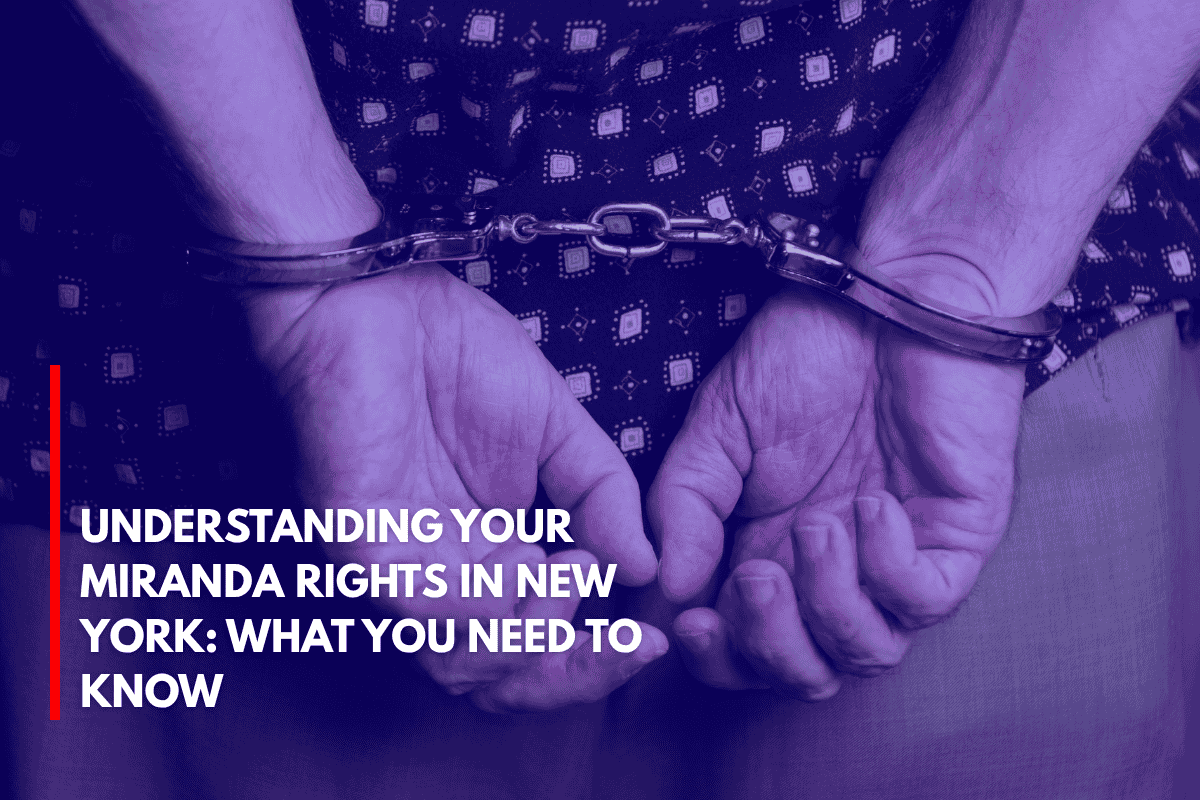Miranda rights are a cornerstone of the American criminal justice system, designed to protect individuals from self-incrimination and ensure fair treatment during police questioning. In New York, as in all states, these rights are rooted in the Fifth and Sixth Amendments of the U.S. Constitution.
What Are Miranda Rights?
Miranda rights are a set of legal protections that must be communicated to individuals who are in police custody and about to be interrogated. The standard Miranda warning includes the following points:
-You have the right to remain silent.
-Anything you say can and will be used against you in a court of law.
-You have the right to an attorney.
-If you cannot afford an attorney, one will be provided for you free of charge.
Additionally, individuals are informed that they can stop answering questions at any time and request an attorney.
When Must Police Read Miranda Rights in New York?
Police in New York are only required to read Miranda rights under specific circumstances: when a person is in custody and is being interrogated. “Custody” means the individual is not free to leave, as in a formal arrest or a situation where their freedom is restricted to a degree similar to arrest. “Interrogation” refers to explicit questioning or actions likely to elicit an incriminating response.
Not Required at Arrest: Miranda warnings are not required at the moment of arrest unless questioning begins while the person is in custody.
Not Required for Voluntary Statements: If a person voluntarily speaks to police without being in custody, Miranda rights do not apply.
Not Required for Routine Traffic Stops: Routine traffic stops or voluntary interviews where the person is free to leave do not trigger the Miranda requirement.
What Happens If Miranda Rights Are Not Read?
If police fail to inform a suspect of their Miranda rights before a custodial interrogation, any statements made during that interrogation may be inadmissible as evidence in court.
This is known as the exclusionary rule. However, physical evidence or statements made voluntarily outside of custodial interrogation may still be used.
How to Invoke Your Miranda Rights
To invoke your Miranda rights, you must make a clear and unambiguous statement, such as:
“I invoke my Miranda rights.”
“I want to remain silent.”
“I want a lawyer.”
Once you invoke your rights, police must stop questioning you. Any continued interrogation after a clear invocation may result in your statements being excluded from evidence.
Key Takeaways
-Miranda rights protect you from self-incrimination during custodial interrogations.
-Police must read Miranda warnings before questioning a suspect in custody.
-If you are not in custody or are speaking voluntarily, Miranda rights do not apply.
-Invoking your rights must be clear and unambiguous.
-Failure to provide Miranda warnings can result in statements being excluded from court.
Understanding your Miranda rights in New York ensures you are prepared to protect yourself if you ever face police questioning. If you believe your rights were violated, consulting with a criminal defense attorney is strongly recommended.
Sources:
- https://www.bhlawfirm.com/blog/2025/04/understanding-your-miranda-rights/
- https://friedmanlevy.com/practice-areas/civil-rights-lawyer-nyc/what-are-miranda-rights/
- https://www.tsiglerlaw.com/blog/what-are-miranda-rights-in-new-york/
- https://legalaidnyc.org/get-help/arrests-policing/what-you-need-to-know-about-your-miranda-rights/











Leave a Reply